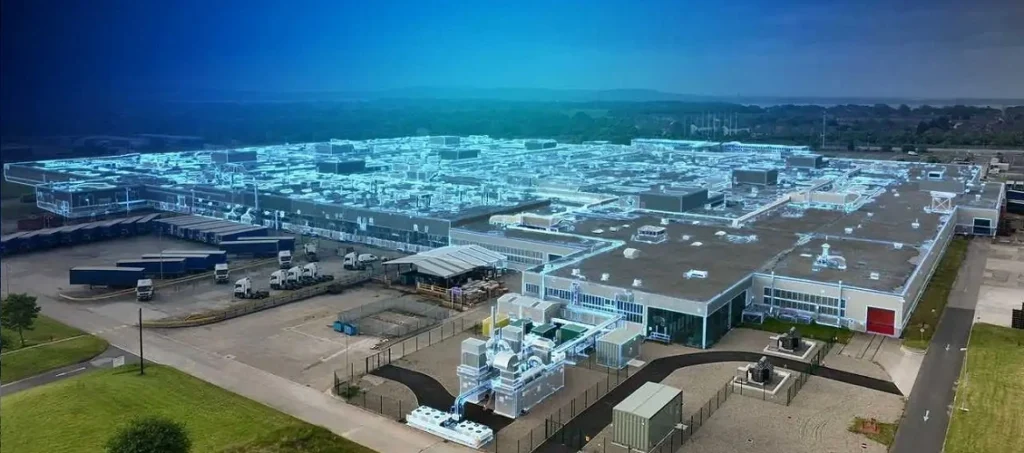Yesterday, Prime Minister Rishi Sunak delayed the 2030 transition goals towards electromobility. This development has sparked discontent among various players in the sector, including Ford Motor Company.
Sunak stated that the Government remained committed to its legally binding goal of achieving net-zero emissions by 2050, but they could afford to slow down their progress because they are already “far ahead of any other country in the world.”
He also indicated that the policy had to be changed because previous governments had acted too quickly in setting these targets.
Indeed, the ban on selling combustion engine cars (petrol and diesel) has been postponed to 2035, five years later.
In response to this decision, Lisa Brankin, Chair & Managing Director at Ford Motor Company, posted on LinkedIn: “Our business needs three things from the government: ambition, commitment, and consistency. A relaxation of the 2030 deadline would undermine all three.”
“We need the policy focus trained on bolstering the EV market in the short term and supporting consumers while headwinds are strong: infrastructure remains immature, tariffs loom and cost-of-living is high,” she added.
It’s worth noting that a couple of years ago, the government announced the UK’s transition to electric car and van sales from 2030.
Following this, the automotive industry began to invest significantly to meet this challenge.
For instance, Ford announced a global commitment of $50 billion for electrification, launching nine electric vehicle models by 2025.
This range is backed by a £430 million investment in the company’s development and manufacturing facilities in the UK, with more funding planned for the period up to 2030.
“This is the largest industry transformation in over a century, and the UK’s 2030 target is a vital catalyst to accelerate Ford towards a cleaner future,” stated Brankin.

Matt Finch, UK Policy Manager at Transport & Environment (T&E), was another voice expressing dissatisfaction.
“Put simply, everyone – especially the car industry – wants the #ZEVMandate unchanged from the proposals that came out in March. Just hurry up and confirm them. With no changes,” Finch said.
However, there were also comments that did not align with Brankin’s views.
For example, Ashvin Suri, Founder of e-zoomed – a leading electric mobility platform – emphasized that “despite the abysmal leadership in the UK in regards to EVs, it is now incumbent on stakeholders like automotive manufacturers and consumers to keep pushing ahead with the transition.”
“We cannot be held hostage by short-term politics aimed at gaining more votes. So keep producing more EVs, and consumers will follow,” Suri added.
UK requests incentives for the purchase of EVs
A new survey commissioned by Savanta demonstrates that two-thirds (68%) of drivers want to transition from gasoline cars to electric cars.
However, convincing consumers to make the switch depends on financial incentives (according to 68% of those surveyed) and easy access to affordable and reliable public charging (according to 67% of those surveyed).
In fact, only 2% plan to do so this year, and 17% in 2024, with more than half saying they won’t be ready until 2026 or later.
In this regard, Mike Hawes, CEO of SMMT, acknowledges: “A comprehensive package of measures would encourage households across the UK to go electric now, boosting an industry slowly recovering from the pandemic and delivering benefits for the Exchequer, society and the global environment.”
Andrew Oakes, the UK and Ireland Director of Juice Technology, expressed a similar sentiment in a conversation with Mobility Portal Europe.
“The main problem we currently face is that the benefits disappeared, and at the same time, electricity costs have risen, and inflation has increased. As a result, the reasons to choose an electric vehicle have disappeared,” he stated.
Is the charging infrastructure growing in the UK?
In order to encourage consumers to purchase electric vehicles, it is essential that they can easily access affordable and reliable public charging, as the lack of infrastructure is one of the reasons hindering the transition.
To address this issue, the UK government recently announced an investment of £444 million in a program aimed at creating thousands of public charging points for electric vehicles.
This announcement coincides with the opening of a charging center in the English region of West Midlands, where 180 EVs can be connected simultaneously.
With these initiatives, it is expected that this deficiency can be addressed in the short term.








